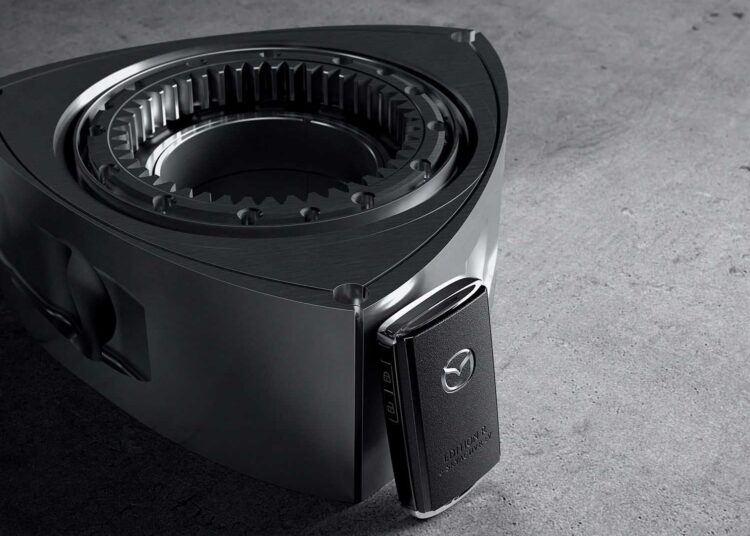It has been over a decade since the last Mazda with a rotary engine went out of production. Finally, the rotary engine’s back, but not in the exciting form of its predecessor.
Used as a range extender for the Mazda MX-30 e-Skyactiv R-EV, the return of the rotary is far from the RX-8 sports coupe. But that doesn’t mean that the Japanese automaker isn’t longing to put the rotary technology into sporty applications; it’s still “a dream” that could or could not happen.
“Rotary is our symbol,” said Yoshiaki Noguchi, assistant manager of Mazda’s powertrain development division, Autocar reports. “It’s a dream of engineers at Mazda to have a sports car with rotary. Now is not the time for that.”
47 Photos
Why so? Because Mazda’s priority right now is to electrify its lineup. Whether for emissions compliance or to keep up with global deadlines, Mazda’s evidently focused on electrifying its cars. The rotary range extender in the MX-30 e-Skyactiv R-EV is part of that, and so will the future of Mazda’s vehicles. Of note, each Mazda vehicle will have some form of electrification by the end of this decade.
To put it bluntly, Mazda has pushed the idea of a rotary-powered sports car to the back burner, but it can happen. It’s just a question of when.
For now, rotary engine fans will have to make do with the 830-cc gasoline mill inside the MX-30 e-Skyactiv R-EV. It has a high compression ratio of 11.9:1, developing 75 horsepower (55 kilowatts) at 4,700 rpm and 116 Newton-meters (86 pound-feet) of torque at 4,000 rpm.
It doesn’t power the wheels, though. Just like Nissan’s e-Power in the Rogue and Kicks, it serves as a generator that charges the battery on the go. This extends the range to more than 600 kilometers (373 miles). However, the major difference is that the MX-30 e-Skyactiv R-EV has the capability to be plugged in, unlike the Nissans.
Read the full article here

























